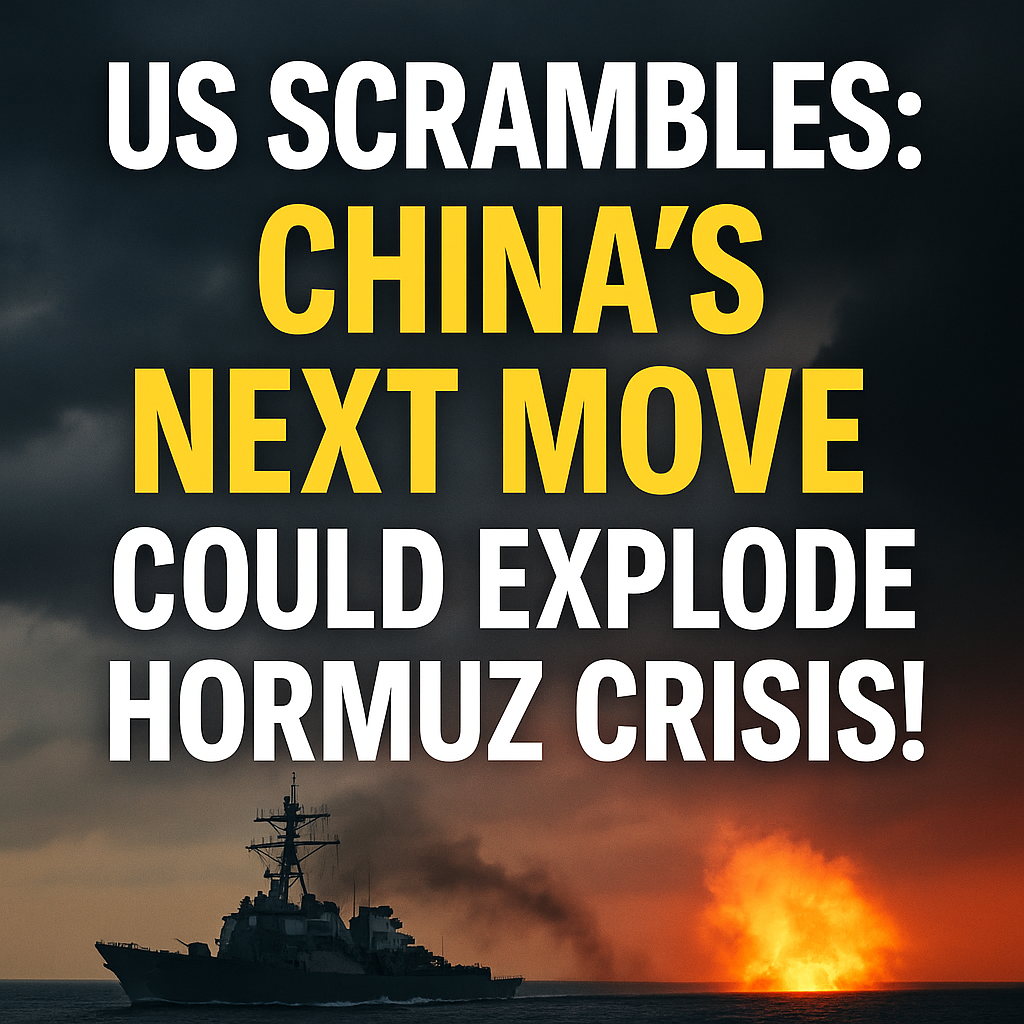The world is watching a serious situation develop in the Middle East. A key sea passage called the Strait of Hormuz is at the center of this growing tension. This narrow waterway is very important because it carries a large amount of the world’s oil and gas. If something happens here, the effects can be felt around the world.
A fresh turn in this story has now pulled China into the picture. A strong request has been made to China to help stop a possible blockage of the Strait of Hormuz. This request has come during a time when the region is already tense due to recent military actions.
Let’s explore the situation step by step to understand why this is creating such a big impact globally.
Strait of Hormuz: The Critical Sea Route at Risk
The Strait of Hormuz is a narrow passage between Iran and Oman. Even though it is only about 33 kilometers wide at its narrowest point, it is one of the busiest shipping lanes in the world. Around one-fifth of the world’s oil supply moves through this route every day. This makes it extremely important for the smooth flow of oil to many countries, including China, India, Japan, and European nations.
🚢 Gulf of Oman on Edge: Mysterious Fires, Electronic War, and Iran-Israel Conflict Rock Oil Route
When oil tankers pass through the Strait of Hormuz, they carry energy supplies that power homes, factories, and transport systems worldwide. Any disruption in this area can push oil prices up quickly. Even the fear of a shutdown can create panic in the global oil markets.
Recently, Iran’s parliament took a serious step. It voted in favor of closing the Strait of Hormuz. This is a strong signal that the region may be moving towards a deeper conflict. However, the final decision still lies with Iran’s top security authorities.
The call to close the Strait came soon after powerful airstrikes were carried out on important nuclear sites in Iran. These attacks damaged key facilities and increased tensions. Following the strikes, Iran’s parliament responded by pushing for the closure of this essential waterway.
If Iran closes the Strait, oil tankers may not be able to pass through safely. This could lead to oil shortages and very high prices across the world. Experts warn that even a temporary closure could cause prices to jump sharply.
China’s Sudden Role in the Crisis
In a surprising move, attention quickly turned toward China. China is one of the biggest buyers of oil that passes through the Strait of Hormuz. Many believe that if anyone can convince Iran to keep the Strait open, it would be China.
China Sends Stark Warning After Israel Hits Iran’s Nuclear Scientists
China buys huge amounts of oil from the Middle East, and a closure of this route would badly hurt its economy. Oil prices would rise, and transportation costs for fuel would increase. Factories could slow down, and the prices of everyday goods might rise sharply.
It has now become a point of global discussion that China could help by using its influence over Iran. China has strong trade ties with many countries in the Middle East, including Iran. If China speaks up, there is hope that the message will carry weight.
The request to China comes with the belief that China can step in before the situation gets worse. Many countries want China to help in keeping the sea passage open to protect the world’s oil supply.
This is not just about oil. If the Strait of Hormuz is blocked, it can also affect gas shipments and food supplies that pass through nearby routes. Countries in Asia and Europe are highly dependent on these supplies.
The situation is so serious that countries are now asking major world powers to step in quickly. They believe that an open Strait of Hormuz is necessary to keep economies running smoothly.
Oil Prices, Military Readiness, and Growing Tension
The news of Iran’s parliament voting to close the Strait immediately caused oil prices to rise. This shows how closely the world watches this narrow sea lane. The price of oil can quickly go up when people think that the flow of oil might stop.
Some oil experts said that the price per barrel could cross very high levels if Iran blocks the Strait. Such a rise in prices would not just affect the oil industry. It would also lead to more expensive fuel, food, and other products for ordinary people.
Meanwhile, the military situation in the region remains tight. Naval forces in the area have plans in place to keep the waterway open if needed. These naval forces are prepared to clear any obstacles, including mines, to make sure oil tankers can pass safely.
Reports from the region say that there are already signs of GPS jamming in the Strait. GPS jamming can make it harder for ships to navigate safely. This adds to the danger in an already tense situation.
Read more about GPS Jamming in Hormuz
At the same time, shipping companies are becoming more cautious. Some are considering safer but longer routes to avoid the Strait if the situation worsens. However, these longer routes would increase the time and cost of transporting oil and goods.
Countries that rely on oil passing through the Strait of Hormuz are closely watching every update. They are carefully observing China’s next steps in this growing crisis. The need to keep oil flowing smoothly is now a major concern for many governments.
As tensions build, it is clear that the situation in the Strait of Hormuz is not just about one country. It has become a matter of global importance, pulling in major powers like China and affecting millions of people worldwide.

